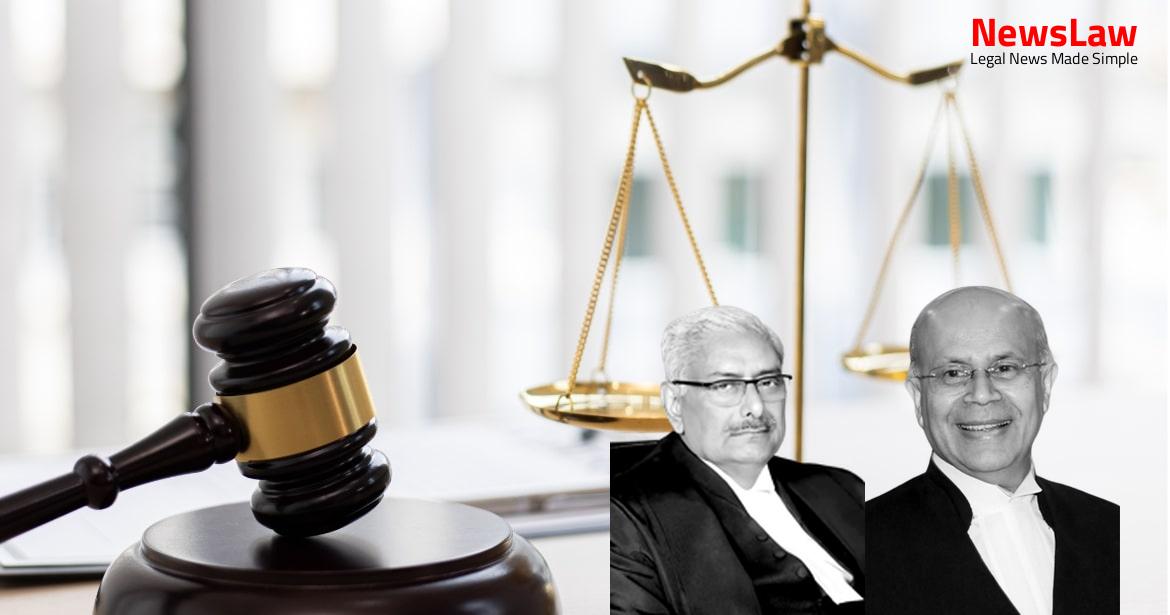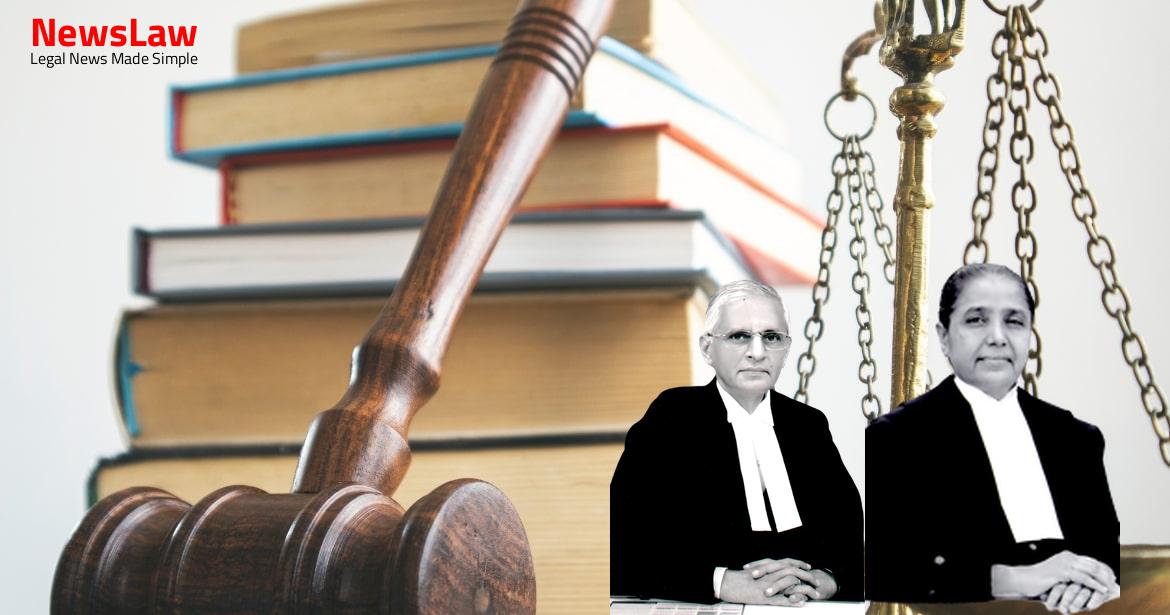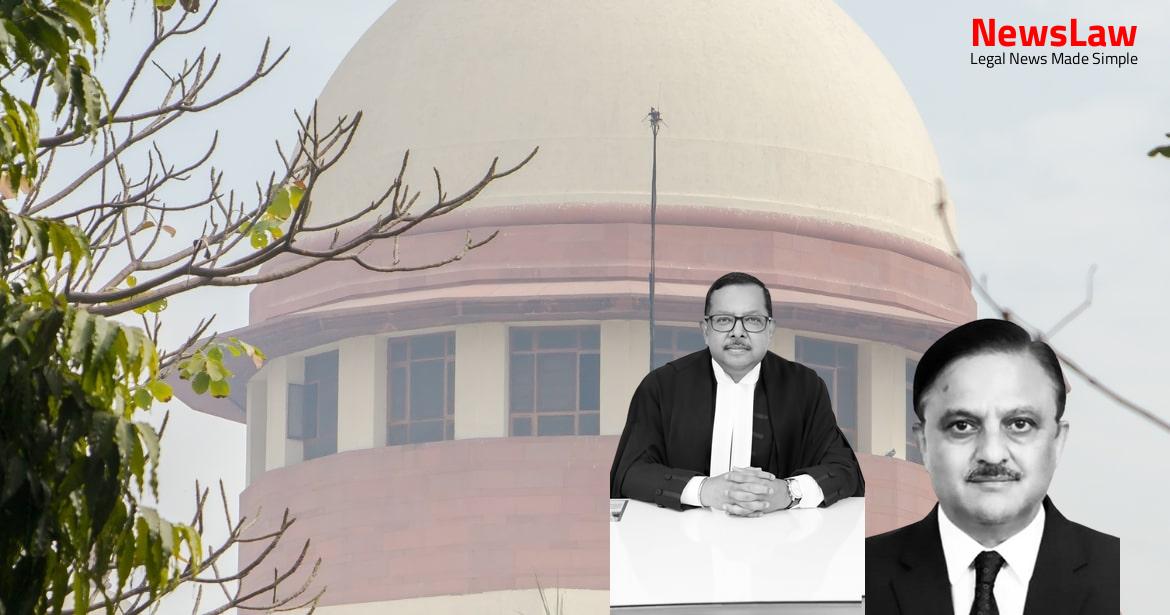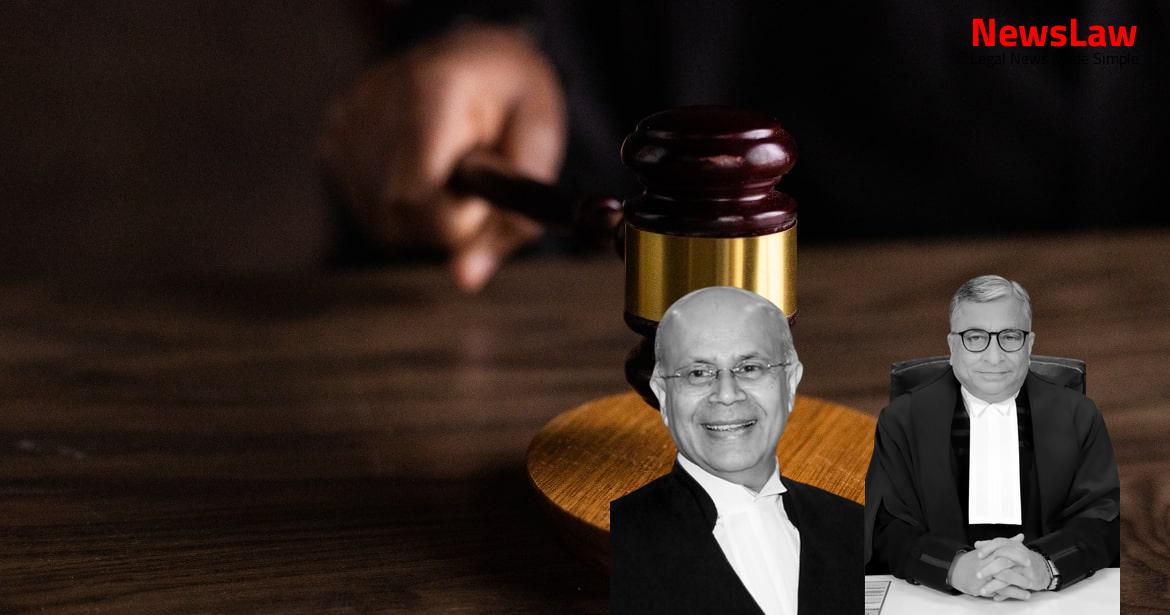In a significant ruling by the Supreme Court of India, the case of Hotel Queen Road Ltd. v. Hillcrest Pvt. Ltd. has been decided with a focus on upholding fairness and equity in corporate governance. The case delved into issues of oppression, mismanagement, and shareholder rights, highlighting the importance of ethical conduct in business practices. The judgment sets a precedent in ensuring that corporate decisions are made in the best interests of the company and its stakeholders. The ruling marks a milestone in the evolution of corporate law in India.
Facts
- Appellant No.1 and Appellant No.2, along with Mr. Ashok Mittal, were involved in a dispute regarding the management of the company HQRL.
- The dispute involved issues related to share allotments, financial mismanagement, and transfer of shares.
- Hillcrest and Mr. Ashok Mittal filed a petition against the appellants under Sections 397/398 of the Companies Act.
- The case involved allegations of oppression and mismanagement by the R.P. Mittal Group.
- The High Court of Delhi set aside the Company Law Board’s order in Company Petition No. 64/2005.
- The dispute also included issues of voting rights, investment, and takeover of the management of HQRL.
- Various meetings, resolutions, and applications were filed by both parties to assert their claims and challenge the actions taken by each other.
- On 31.5.2013, High Court allowed CoA (SB) 4/2006 of Hillcrest
- Cancelled the allotment and transfers made on 27.7.2004, 7.1.2005, and 10.5.2005
- Reason: Hillcrest had voting rights and breach of sections 286, 300, and 108 of Companies Act
- Ashok Mittal holds 92% of equity shares of HQRL
- Moral and Mr. R.P. Mittal own about 8% shares of HQRL
- Delhi High Court restrained Hillcrest from giving effect to the resolution passed in the EOGM
Also Read: Supreme Court Upholds Conviction in POTA Case: A-10 (Parvez Khan Pathan)
Issue
- The issues regarding whether HQRL is a public limited company or a private limited company and whether Hillcrest, a preference shareholder, had any voting rights were deemed irrelevant to the main question at hand.
Also Read: TAFRC Fee Determination Case: Upholding Expert Authority
Arguments
- The appellants filed two appeals, C.A. No. 3934/2017 and C.A. No. 3935/2017, with the suit still pending.
- Meetings held were deemed oppressive and prejudicial to Hillcrest and Mr. Ashok Mittal.
- The transfer of shares from Moral to Mr. R.P. Mittal was found in violation of Section 108 of the Companies Act as the physical share certificate was not in possession of Moral at the time.
- The contention that preference shareholders had acquired voting rights under section 87(2)(b) was deemed misconceived.
- Actions deemed oppressive not solely based on legality but also on ethical grounds.
- Numerous legal precedents cited to support the arguments presented.
- The legality and validity of three board meetings held on specific dates were crucial in the case.
- Allegations regarding financial mismanagement and fiduciary duties of directors were raised and debated.
- Interim orders were discussed in terms of their precedential value.
- The shareholding pattern transfer from Moral to Mr. R.P. Mittal was detailed, emphasizing the separate legal entities involved.
- The issue of voting rights under section 87(2)(b) and the concept of oppression in company disputes were focal points of argument.
- The relevance of RBI special permissions over provisions of the Companies Act was discussed.
- Disputes involving share transfers, takeover of management, and rights issues were key areas of contention.
- Allegations of false claims and illegalities in board meeting resolutions were made.
- Issues of oppression, violation of Companies Act sections, and financial improprieties were raised and examined.
- The legality of certain board meeting resolutions was questioned based on related sections of the Companies Act.
- Arguments regarding dividends, profits, and voting entitlements were scrutinized.
- The claim of undervalued allotments was refuted.
- The desire to uphold the High Court order without disrupting the current management arrangements was expressed.
- Concerns over misleading statements and actions detrimental to the company’s interests were highlighted.
- Emphasis on the importance of final orders over interim decisions in legal precedents.
- Mr. Ashok Mittal has substantial interest in HQRL, being a director and having convinced Hillcrest to invest in the company.
- The appellants had invested significantly less than Hillcrest in HQRL, and the three board meetings were found to be invalid due to violations of the Companies Act.
- It was argued that Mr. Ashok Mittal was oppressed as he was not given the opportunity to participate in share allotment and the meetings violated Section 286.
- The Company Law Board concluded that shares should have been allotted to Mr. Ashok Mittal, who had substantial interest in HQRL.
- Various legal arguments were made regarding the validity of actions taken by the appellants, including the reliance on FEMA regulations and Reserve Bank of India permissions.
- Two civil suits are pending regarding the resolutions and ownership of HQRL, with arguments over investments made by different parties.
- The interest of the company and balance of investments made by different shareholders were emphasized in the arguments presented.
- The relationship between Moral and HQRL, the bank loans obtained, and the resolutions passed were key points of contention in the arguments made.
Also Read: Urs Family Property Dispute: Supreme Court Decree
Analysis
- The Division Bench ordered winding up of the company due to oppressive acts by the directors.
- The shares issued by the directors were considered to be invalid and set aside as they were obtained for control purposes rather than the benefit of the company.
- The exercise of power by the directors must be in the interest of the company and not solely for personal gain.
- The doctrine of proper purpose was emphasized where the Directors’ actions should not only be in good faith but also have a proper motive.
- The principles of equity and fiduciary duty were highlighted, indicating that directors should not act in conflicts of interest that may harm the company.
- A series of legal acts may lead to oppression if the objective is to harm certain individuals.
- Even legal actions may be considered oppressive if they unfairly prejudice certain parties.
- The court’s jurisdiction in these matters is to ensure fairness and prevent actions that go against probity and good conduct.
- The Court observed that the issue of Mr. Ashok Mittal’s participation in the decision-making process when he had a significant sway over the Board needs to be decided in the pending suits.
- The Court highlighted the importance of the law evolving to keep pace with societal changes and not lag behind.
- The High Court’s reasoning for considering Section 108 as directory was deemed flawed, and the court emphasized the importance of Section 629(A) of the Act in prescribing penalties.
- It was noted that the legislature’s intent regarding prohibitions or penalties in the Act must be construed on a case-to-case basis.
- The Court found the High Court’s opinion on the factual matrix of the case supporting the section 397 ground to be sufficient.
- The legal status change from private to public company of Hotel Queen Road was a pivotal issue in the pending suits, restraining further deliberation by the current Court.
- The Court underlined the mandatory nature of certain provisions reinforced by their negative language and clarified that direction given under Section 108 operates independently of other sections like 286.
- The observations in the judgment were temporary and not meant to influence the final decisions in the pending suits regarding Hotel Queen Road’s status change.
- The Court opined on the implications of Section 87(2)(b) and acknowledged the significance of the Reserve Bank of India permissions.
- The restriction against share transfers without compliance was accentuated using negative language, and the consequences of not following Section 108 were reiterated.
- The Court made it clear that the interim orders in the civil suits had contradictory implications and needed separate considerations.
- The Court emphasized the need for maintaining fairness and avoiding prejudice, especially in cases of oppression under Section 397.
- The Court highlighted the need for compliance with procedural requirements in decision-making processes, especially concerning share transfers and allotments.
- The Court urged quick resolution of the pending suits to avoid management uncertainty in Hotel Queen Road.
- Section 300 of the Companies Act prohibits interested directors from participating or voting in board proceedings regarding contracts they are directly or indirectly involved in.
- The second proviso states that the company has the power to register any person to whom the right of shares or debentures has been transmitted by operation of law.
- Section 108 of the Companies Act of 1956 states that a company cannot register the transfer of shares without a properly executed instrument of transfer delivered to the company.
- A violation of Section 108 was claimed by Hillcrest regarding the transfer of shares from Moral to Mr. R.P. Mittal during a board meeting.
- Section 286 mandates that notice of every board meeting must be given in writing to all directors, and failure to do so can result in a fine.
- The aforesaid proposition is accepted as the established truth in this case.
- The specific circumstances and facts of the case have been duly considered.
- There is no room for disagreement with the mentioned proposition in this context.
Decision
- Direction to prosecute appellant Ram Parshotam Mittal set aside
- Appeals disposed of
- Parties to bear their own costs
- Impugned order calls for no interference
Case Title: RAM PARSHOTAM MITTAL Vs. HOTEL QUEEN ROAD PVT.LTD. ANDORS.
Case Number: C.A. No.-003934-003934 / 2017



